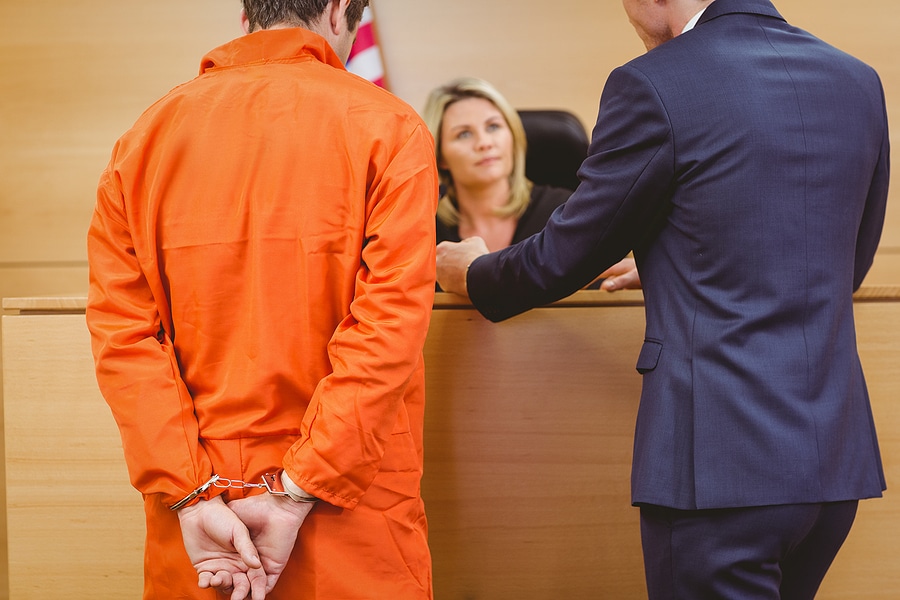It is crucial that you know what you expect when you find yourself in the criminal justice process in Wisconsin. Your case will have a number of steps that can play out over time. For each of these steps, it is vital that you have legal representation from an experienced criminal defense attorney who can vigorously defend you from the charges against you. The attorneys at Hogan Eickhoff deliver results for our clients, and we can put our experience to work for you. Contact us today to schedule a free initial consultation with one of our attorneys.

Arraignment and Initial Appearance
Shortly after you have been charged with a crime through an indictment, you would appear in front of a judge. This hearing is held very shortly after you have been charged, as is your constitutional right. Many things will happen at your initial appearance. First, you will be made aware of all the charges that you are facing, as they will be read to you. The court would ask you for your initial plea, which should always be not guilty (you have the ability to change your plea later). Here, the judge could also decide whether to release you from custody. They could release you on your own recognizance, or they may decide to set bail. In rare cases, the judge may order you held without bail. Given what may be decided at your initial appearance, you should have an attorney by this stage of your case.
Pre-Trial Hearing
The judge would conduct a mini-trial to determine whether there is probable cause to move forward with the charges against you. The prosecutor may put on their evidence that underlies the charges that they have filed against you. Your attorney may also present some of your evidence that could tell your side of the story. Here, the goal is to determine probable cause and not to decide whether you are guilty. Probable cause means that there is a reasonable basis to believe that a crime has been committed. The judge could dismiss one or all of the charges against you, possibly narrowing the case against you. It is in your interest to have an attorney representing you at the pre-trial hearing.
Motions
As the case progresses, both your attorney and the prosecutor may file motions in the case. Your attorney may file motions to dismiss the case based on various grounds. One of the key areas of motions submitted to the court involves the evidence that prosecutors may be able to use against you at trial. Your attorney could seek to suppress some of the evidence. In some cases, the evidence may have been illegally seized, and you have an interest in keeping it out of court. If the judge rules in your favor on some or all of your motions, it could significantly limit the case that prosecutors can make. Even if the judge does not dismiss the case entirely, keeping out some of the evidence can drastically improve your chances of success. The prosecutor may even drop some of the charges, or you could be in a stronger position when it comes to negotiating a plea bargain.
Plea Negotiations
Most criminal cases do not end up going to trial. Either the charges are dropped or dismissed, or you may choose to negotiate a plea bargain with the prosecutor to limit your own risk. You could end up with a stiffer sentence if you go to trial and lose than if you reached a plea deal. Working with your attorney, you may decide to negotiate a plea deal with the prosecutor. Beginning these negotiations would not have an impact on your case should you not reach a deal because evidence of plea bargain negotiations is not admissible in court. Negotiations may be ongoing at various points in the trial. The prosecutor may make you an offer, and your attorney could counter with your own offer. Plea bargains can end in lesser charges or a reduced sentence, which may be the best possible outcome in your case.
Trial
If you have defenses to the charges against you, or the prosecution will not make you a reasonable plea bargain offer, you may have no choice but to fight the charges against you. Then, your case would head to trial in front of a jury. The prosecution would make their case first to the jury. They would present a series of witnesses who testify about the facts of your case and the evidence. Under the Sixth Amendment to the United States Constitution, your attorney has the right to confront the witnesses in court through cross-examination. Once the prosecution rests their case, the defense is able to make theirs. You would also call witnesses who would testify in your favor, and they would be cross-examined by the prosecutor. At the conclusion of the case, the jury (or the judge if you asked for a bench trial) would decide whether to convict you of the charges.
Sentencing
If you are convicted of a crime or you have pleaded guilty, the judge would sentence you. They may rely on pre-sentencing reports and any aggravating or mitigating factors in imposing the sentence. If you have been convicted, you also have the right to file an appeal based on any mistakes that were made at trial. The appellate court would not review the facts that the jury found, but they would consider the impact that any errors had on your trial and conviction. Your conviction could be overturned on appeal, or your case may be remanded to the trial court.
Contact an Appleton Criminal Defense Attorney Today
The experienced criminal defense lawyers at Hogan Eickhoff can represent you when you are facing charges. You need vigorous legal representation in a criminal justice case, which we can provide you. To schedule a free initial consultation with one of our attorneys, you can contact us today at 920-450-9800.
